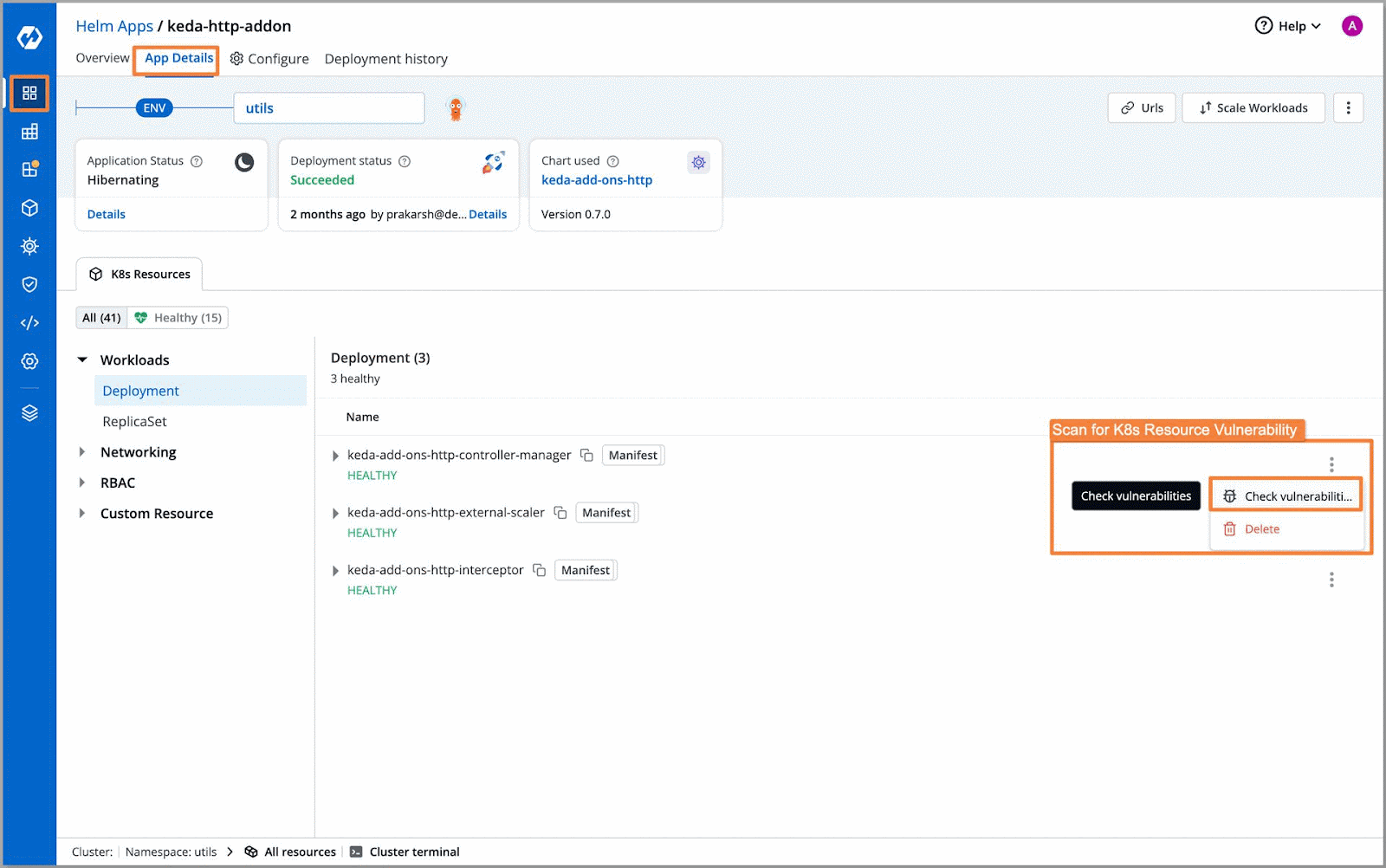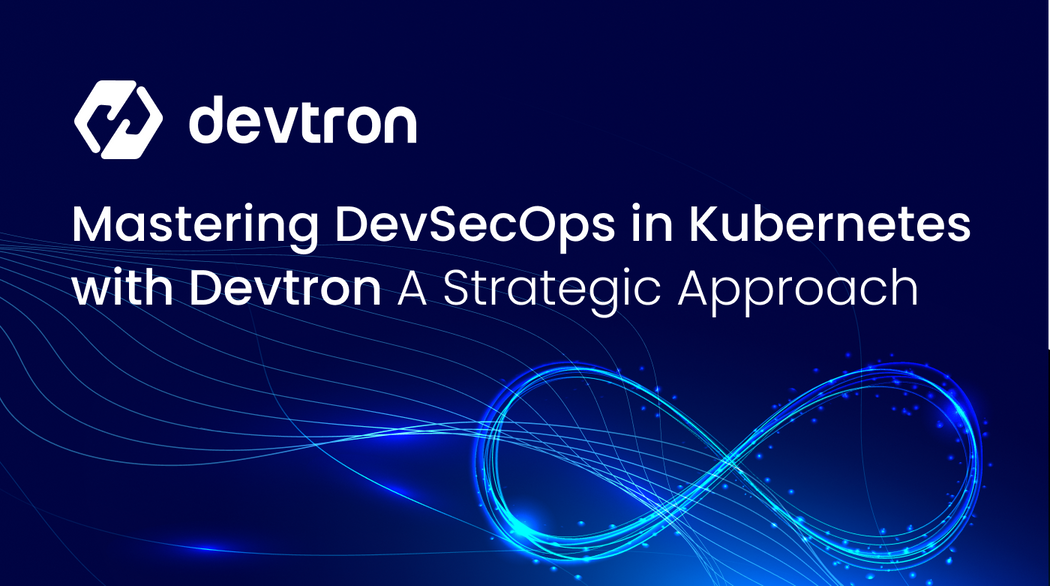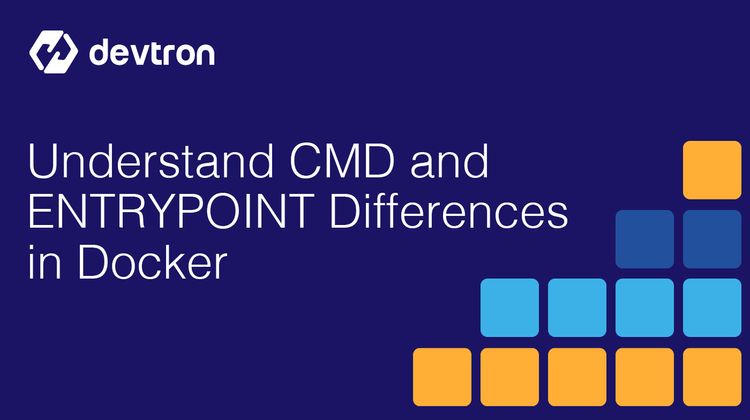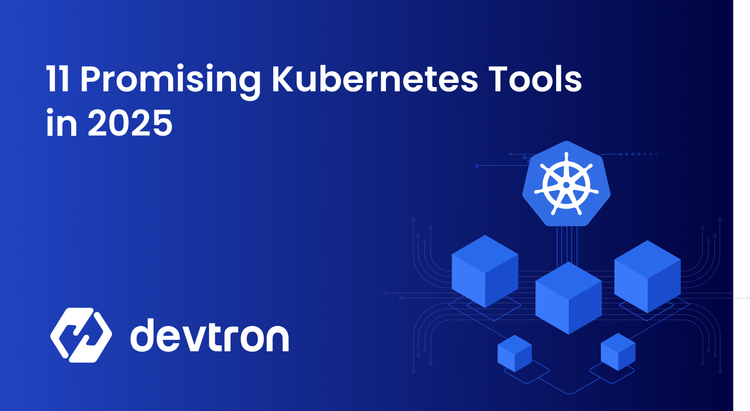As the adoption of Kubernetes continues to grow, organizations encounter numerous challenges in securing their software development and deployment processes. Integrating security practices into DevOps, known as DevSecOps, is vital for ensuring the integrity and security of applications in a Kubernetes environment. In this blog post, we will delve into the concept of DevSecOps, discuss the challenges associated with its implementation, and explore how Devtron's robust DevSecOps capabilities offer an effective solution.
Understanding DevSecOps
The DevSecOps approach aims to automate the integration of security at every phase of the software development lifecycle, from initial design through integration, testing, deployment, and software delivery.
When Do Organizations Start Thinking About Security Seriously?
The importance of security in software development often comes to the forefront in response to specific triggers. Two primary catalysts typically prompt organizations to take security seriously:
- Security Incidents: A security breach or incident serves as a wake-up call, highlighting the vulnerabilities within the system and the urgent need for robust security measures.
- Compliance Requirements: Regulatory pressures or compliance requirements enforced by customers or industry standards necessitate the implementation of stringent security practices.
Despite the critical nature of security, it is frequently overlooked until these triggers occur. One reason for this neglect is the perceived lack of Return on Investment (ROI). Security investments are often seen as a cost center rather than a value driver. However, the aftermath of a security incident or the pressure to meet compliance standards can quickly shift this perception.
Justifying the ROI of Security Investments with Devtron
Devtron helps organizations see a tangible ROI on their security investments by reducing the costs and complexities associated with implementing comprehensive security measures. Here’s how Devtron makes a compelling case for ROI:
- Reduced Integration Costs: By seamlessly integrating security tools within the CI/CD pipeline, Devtron minimizes the overhead and labor costs associated with managing multiple security solutions.
- Accelerated Time-to-Market: Devtron’s automation capabilities ensure that security checks do not slow down the development process, allowing organizations to deploy applications faster while maintaining high security standards.
- Enhanced Collaboration and Communication: Devtron fosters better collaboration between development, operations, and security teams, reducing the time and effort needed to address security issues.
Establishing DevSecOps Practices
To handle security proactively and efficiently, organizations need to establish DevSecOps practices. DevSecOps is a framework that enhances collaboration, communication, and the implementation of security fundamentals throughout the software development lifecycle.
Ideal Stepwise Approach to Implementing DevSecOps
- Define Security Objectives: Clearly articulate the security goals tailored to the specific needs of your business domain, whether it’s finance, healthcare, logistics, etc.
- Basic Threat Modeling: Identify and evaluate potential threats to your system. Categorize threats into those that are critical (no-go), warning (yellow flag), and non-critical (low impact).
- Hire Relevant Team/Agency: Once security objectives and threats are defined, hire the appropriate security experts or engage with a security agency to implement the necessary measures.
Steps to Implement DevSecOps with the Relevant Team
- Build Observability Around Vulnerabilities: Establish observability by integrating multiple data sources and signals related to vulnerabilities. This helps in proactively identifying and addressing security threats.
- Define Compliance (Guardrails): Set up guardrails based on the threat model. These are the rules and policies that ensure your software operates within the defined security parameters.
- Establish Governance: Develop a governance model to enforce compliance with the guardrails. This includes setting up automated checks and balances within the CI/CD pipeline to ensure adherence to security policies.
How Devtron Facilitates DevSecOps Implementation
Devtron simplifies and enhances the implementation of DevSecOps practices through a comprehensive and integrated platform. Here’s a closer look at how Devtron supports each critical step in the DevSecOps journey:
1. Security Objectives and Threat Modeling
Devtron provides a robust framework for defining security objectives and conducting threat modeling:
- Security Dashboards: Devtron’s dashboards offer a holistic view of the security landscape, helping organizations set clear security objectives based on real-time data and trends.
- Threat Analysis Tools: Devtron integrates with various threat analysis tools to identify and categorize potential threats. This helps in understanding the risk profile of different components within the application.

2. Tool Integration
Devtron excels in integrating various security tools, ensuring comprehensive coverage and timely detection of vulnerabilities:
- Vulnerability Scanning: Devtron integrates seamlessly with popular vulnerability scanning tools like Trivy, allowing for continuous scanning of code, container images, and Kubernetes manifests.


- Customizable Security Plugins: Organizations can integrate their preferred security tools into Devtron’s CI/CD pipeline, ensuring that existing investments in security tools are leveraged effectively.

3. Policy Enforcement
Defining and enforcing security policies is crucial for maintaining compliance and ensuring consistent security standards. Devtron makes this process straightforward and effective:
- Hierarchical Policy Management: Devtron allows organizations to set security policies at global, cluster, environment, and application levels. This hierarchical approach ensures that specific needs of different environments are met without compromising overall security.
- Automated Policy Enforcement: Policies defined in Devtron are automatically enforced during the CI/CD process. Any non-compliance is flagged, and deployments can be blocked or allowed based on predefined rules.

4. Governance Automation
Governance is key to ensuring that security policies are followed consistently. Devtron automates governance processes, reducing manual intervention and increasing reliability:
- Automated Compliance Checks: Devtron continuously monitors compliance with security policies. Any deviations are automatically detected, and corrective actions can be initiated.
- Real-Time Alerts and Notifications: Devtron provides real-time alerts and notifications for security incidents, ensuring that the relevant teams are informed immediately and can take prompt action.
- Audit Trails: Detailed logs and audit trails are maintained for all security-related actions, providing transparency and accountability. This is particularly useful for meeting regulatory requirements and for post-incident analysis.
5. Enhanced Collaboration and Communication
Effective collaboration and communication are vital for the success of DevSecOps practices. Devtron facilitates this by providing a unified platform for all stakeholders:
- Shared Dashboards and Reports: Development, operations, and security teams have access to shared dashboards and reports, ensuring everyone has a common understanding of the security posture.
- Contextual Communication Tools: Devtron includes tools for contextual communication, enabling teams to discuss specific security issues directly within the platform. This reduces miscommunication and speeds up issue resolution.
6. Observability and Insights
Devtron enhances observability and provides deep insights into the security health of applications and infrastructure:
- Integrated Monitoring: Devtron integrates with monitoring tools to provide continuous visibility into the security status of applications and infrastructure.
- Detailed Metrics and Analytics: Devtron offers detailed metrics and analytics, helping teams understand the impact of security measures and identify areas for improvement.
- Periodic and Ad-Hoc Scans: Organizations can schedule periodic scans or initiate ad-hoc scans to ensure ongoing security compliance and address newly discovered vulnerabilities promptly.
Conclusion
By adopting DevSecOps with Devtron, organizations can proactively address security concerns, ensuring that security is built into the development process from the ground up. This not only mitigates risks but also enhances the overall efficiency and effectiveness of the software delivery lifecycle.







